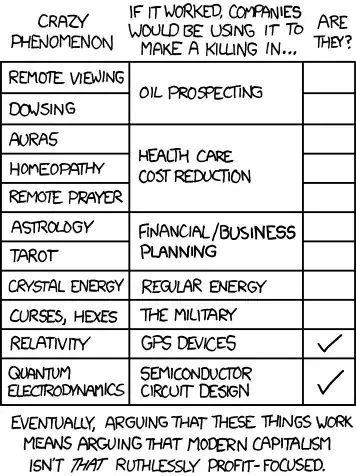This article in The Nation contains an excerpt from “Ecological Redemption: Ocean Farming in the Era of Climate Change,” a lecture by Bren Smith given at the Thirty-Fifth Annual E. F. Schumacher Lectures on October 24, 2015.. The lecture reads like one big advertisement for growing ocean vegetables in zero-input farms. Reading it makes one wonder why this technology doesn't feed the world already. For example, it claims:
This is zero-input food that requires no fresh water, no fertilizer, no feed, no arid land—making it hands down the most sustainable food on the planet. And as the price of fertilizer, water, and feed goes up, zero-input food is going to be the most affordable food on the planet. The economics of it will drive us to eat ocean greens.
and
Seaweeds are a powerful source of zero-input biofuel; we can produce 2,000 gallons of ethanol per acre—that’s a 30 times higher yield than soybeans and five times more than corn. According to the Department of Energy, if you were to take a network of our farms equaling half the size of the state of Maine, you could replace all the oil in the United States.
Is it accurate to state that the three-dimensional ocean farms described in the lecture provide zero-input food, zero-input biofuels, and are therefore the most sustainable food or biofuels on the planet?
I recognise there may be no established definition of zero-input farming. Therefore, I am satisfied if any research shows that this form of farming is far more sustainable than existing farming, taking into account negative externalities including pollution and resource depletion.
I'm sceptical because I believe that if it were as amazing as the lecture states, big business would be making billions off it already. There must be a catch.

The Economic Argument. By Randall Munroe, XKCD.
See also:
- Greenwave, 3D Ocean Farming for additional claims.
- The Guardian, 22 October 2015